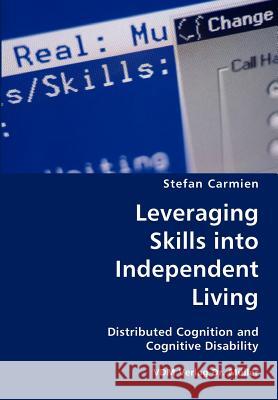Leveraging Skills into Independent Living- Distributed Cognition and Cognitive Disability » książka
Leveraging Skills into Independent Living- Distributed Cognition and Cognitive Disability
ISBN-13: 9783836420068 / Angielski / Miękka / 2007 / 256 str.
In the US alone, over four and a half million people have cognitive disabilities.Except for deficiencies of mnemonic and executive capabilities, many of themhave the potential to live a more independent life. In this book, the authordescribes a design approach and an example system aimed at providingsupport to those missing abilities in a socio-technical environment. The system,MAPS, consists of two technical components: a script design tool thatallows a caregiver to create, store, edit and reuse scripts of multimediaprompts to guide users thru tasks, and a PDA-based prompter that playsthose scripts for persons with cognitive disabilities. The process of technologyadoption was also studied as the MAPS system was put in use doing real-lifetasks in home, shopping, and employment environments. By extendinghuman-computer interaction (HCI) frameworks, theories, and perspectives,this research shows new ways of using traditional HCI in the design and useof prompting systems. More importantly, this study presents a set of heuristicsto aid in the general design of assistive technology with an aim ofpreventing technology abandonment.











